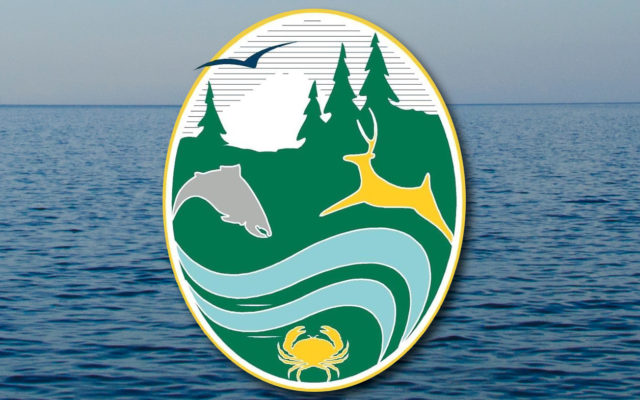WDFW Commission approve location/catch reports from fishing guides; request funding from state

In a recent meeting of the Washington Fish and Wildlife Commission, they report support for a $24.5 million operating budget in 2020 to sustain current operations and make strategic enhancements
In a release, the commission says that at their meeting they took action on a number of items, including requiring monthly fishing guide logbook reporting, as well as approving a request to the State Legislature to increase Washington Department of Fish and Wildlife funding.
The commission adopted rules that will require fishing guides to report their fishing activities on a monthly basis beginning Jan. 1, 2020. Fishing guides will provide WDFW with information such as the date and location of each guided fishing trip, the number of anglers onboard, and the number and type of fish species caught per trip. This information will help WDFW understand the role the guide industry plays not only in terms of helping recreational anglers to access fisheries, but also in providing economic benefits to local and state economies.
At the meeting, the commission approved the department’s request to seek $24.5 million in increased operating funds, plus $26 million in capital funds, during the 2020 state legislative session.
The commission states that the the bulk of the funding request, $11.4 million, would be to address an ongoing deficit, which they say is “driven by legislated and unavoidable cost increases, such as the rising costs of wages and centralized state services”.
The department will also seek $6.6 million to continue serving the public at current levels. They say that department services at risk in 2020 without ongoing, additional funding includes:
- Cuts to the staff who provide community and private landowner habitat conservation expertise;
- Cuts in fish production at eight salmon and trout hatcheries;
- Cuts to hunting opportunities;
- Cuts to staff able to provide non-lethal response when people and wildlife are in conflict;
- Cuts to shellfish inspections for the benefit of public safety;
- Cuts in access to salmon and steelhead fishing on portions of the Columbia River and its tributaries;
- Cuts to maintenance and forest health treatments across the million acres of land managed by the department; and
- Cuts to customer service.
“People really value how this work improves their lives – we know that. We had widespread stakeholder support last year, and we believe we will again this year,” shared Commission Chair Larry Carpenter. “We want to see all of these items funded not just for another year, but on an ongoing basis. Though, ultimately, it’s about more than just these services that are at risk – it’s really about having a functional department that’s able to deliver results whether you enjoy fishing and hunting, or just knowing that our state’s wildlife is thriving and conserved for the future.”
The commission also says they approved a request of $6.5 million in new, ongoing funding for:
- Better monitoring of salmon in Puget Sound, the Nisqually River, and Skagit River to provide fishing opportunities;
- Removing sea lions feeding on Columbia River salmon;
- Meeting existing Columbia River commitments for commercial fishing and salmon recovery objectives;
- Continuation of the Fish Washington mobile app, which helps anglers to comply with necessary rules;
- Salmon habitat regulatory protections; and
- Minimizing humpback whale entanglement with commercial crab pots.
Additionally, the commission directed the department to refine its state hatchery and fishery reform policy process timeline. The policy was originally adopted by the commission in 2009. Last year, commissioners called for a scientific review of the policy, which is intended to improve hatchery effectiveness, ensure compatibility between hatchery production and salmon recovery plans, and support sustainable fisheries. The commission directed WDFW staff to come back to their September meeting with a revised schedule that would better accommodate tribal co-manager engagement and public review.
The commission also heard updates on the department’s work to enhance access to hunting and fishing for those with disabilities, and a national and state study to assess people’s values pertaining to wildlife. In addition, several members of the public took time to speak to the commission during open comment about challenges in wolf management.



